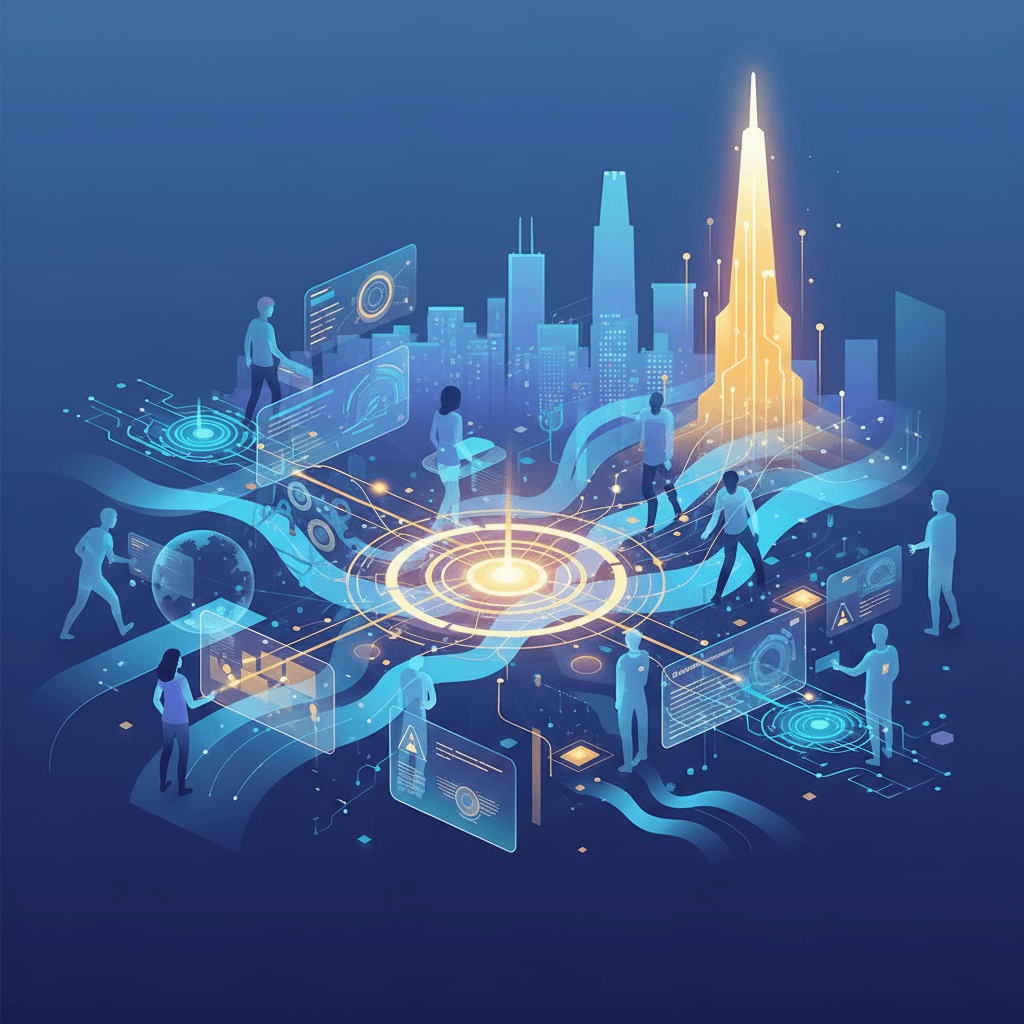Salesforce Anchors AI Future with $15 Billion Investment, Launches Agentforce 360
Salesforce's $15 billion San Francisco investment sets the stage for Agentforce 360, pioneering the human-AI "Agentic Enterprise."
October 14, 2025

Salesforce has firmly anchored its future to the advancement of artificial intelligence, announcing a monumental $15 billion investment in its hometown of San Francisco over the next five years.[1][2][3] This declaration of intent, made just ahead of its annual Dreamforce conference, is designed to cement the city's status as a global AI capital.[2][3] Coupled with this massive financial commitment is the launch of Agentforce 360, a comprehensive platform designed to integrate human employees with AI agents, heralding the company's vision for an "Agentic Enterprise."[4][5] The dual announcements signal a strategic pivot for the cloud software giant, tying its own growth and the evolution of its product ecosystem directly to the proliferation of AI in the enterprise, while simultaneously reaffirming its deep-rooted, though sometimes complex, relationship with San Francisco.
The $15 billion pledge is multifaceted, aimed at fostering a robust AI ecosystem within the city.[6][7] A key component of this initiative is the establishment of a new AI Incubator Hub at Salesforce's campus, created to support and accelerate the growth of early-stage AI startups.[8][1][9] Beyond nurturing new companies, the investment will heavily fund workforce development and training programs, preparing the local talent pool for the new wave of jobs emerging in the AI era.[3][7] Salesforce is actively promoting the transition for businesses to become what it terms "Agentic Enterprises," where AI agents perform tasks on behalf of users, and this investment is structured to support that transformation for its customers and the broader business community.[1][2] While the company has outlined these broad strokes, specific financial breakdowns of the $15 billion figure across capital spending, operating costs, or grants remain undisclosed, leading some to view the announcement as a broad commitment rather than a detailed financial plan.[9] Nevertheless, the investment underscores Salesforce's position as the city's largest private employer and its significant economic influence, further evidenced by the Dreamforce conference itself, which is expected to generate an estimated $130 million in local revenue.[1][2][9]
At the heart of this strategic direction is Agentforce 360, the tangible product manifestation of Salesforce's agentic vision. The platform is engineered to be the central nervous system for businesses seeking to deploy AI, unifying humans, AI agents, data, and applications.[10] It is not merely a chatbot or a simple automation tool; instead, it's a comprehensive suite built on four core pillars: the Agentforce Platform for building and managing AI agents, Data 360 to provide trusted and unified data context, Customer 360 Apps to embed agents within business workflows, and Slack, which serves as the primary conversational interface where collaboration between humans and AI occurs.[5][10] Salesforce is positioning Agentforce 360 as a solution that moves beyond the experimental pilot phase that traps many enterprise AI initiatives, with the company itself serving as "Customer Zero" and citing 12,000 customers already using the platform.[5][11]
The implications for the broader AI industry are significant, as Salesforce leverages its vast market presence to define the architecture of the AI-powered workplace. By focusing on orchestration—the coordination of various AI agents from both first and third parties—Salesforce is competing directly with other tech giants like Microsoft and ServiceNow to become the central, trusted platform for enterprise AI.[12][10] The platform includes tools like Agent Script, which allows for deterministic control over agent behavior, and a Hybrid Reasoning Engine to blend predictable logic with the flexibility of large language models, addressing enterprise concerns around AI reliability and governance.[13][10] Early case studies suggest tangible benefits for adopters. Reddit, for instance, reported deflecting 46% of support cases and slashing resolution times by 84%, while OpenTable noted that its AI agents handle approximately 70% of inquiries without human intervention.[5][14] These results showcase the potential for significant efficiency gains and a reimagining of customer service and internal workflows.
In conclusion, Salesforce's dual announcements represent a deeply intertwined strategy. The $15 billion investment in San Francisco is not just a philanthropic gesture or a reaffirmation of corporate citizenship; it is a direct investment in creating the ideal environment for its AI-centric products, like Agentforce 360, to flourish. By funding AI startups, developing a skilled workforce, and supporting the transition to agentic business models, Salesforce is cultivating its own future market. Agentforce 360, in turn, provides the technological foundation for this vision, offering a tangible pathway for enterprises to integrate AI into the core of their operations. The success of this grand strategy will depend on widespread adoption beyond the initial 12,000 customers and on Salesforce's ability to prove a clear return on investment for companies navigating the complex and often costly transition into the age of the Agentic Enterprise.